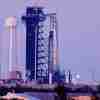
Explainer | What is happening in Venezuela?
The Hindu
UN Human Rights Council has called on member states to “scale up pressure” on Venezuelan authorities and call for free and fair elections in the country.
The story so far: As nations across the globe track Venezuela for their oil requirements, the United Nations Human Rights Council (UNHRC) said last week that the country would be put to scrutiny at the forum. As part of its oral update exercise, the council would provide an opportunity to member states to shed light on the ongoing human rights crises in the country such as crackdown on dissent, humanitarian emergency and the migration crisis.
The forum asked member states to “scale up pressure on Venezuelan authorities” to abandon their systematic campaign against civil society activists and journalists, among others. “Member states should also call for Venezuela to ensure free and fair elections, and to implement recommendations issued by the Office of the High Commissioner for Human Rights and the Fact-Finding Mission,” the statement read.
The sequence of events goes back to April 2013 when the then-Venezuelan President Hugo Chavez died of cancer, following which his preferred successor Nicolas Maduro, won the presidential election against Henrique Capriles, candidate of the opposition alliance, the Democratic Unity Roundtable (MUD).
In January 2014, with plummeting oil prices globally, Venezuela was mired in a state of economic decline, inflation and widespread insecurity among the public. A group of opposition leaders initiated a campaign, referred to as The Exit, to oust the incumbent President. Public protests also took shape. The UNHRC mentions that the security forces used excessive force against unarmed protestors and bystanders. Further, the government forces tolerated and sometimes collaborated directly with armed pro-government gangs that attacked protestors.
The agency notes that inflation had reached 63.4% in December 2014. The continually deteriorating economic situation recurrently raised tensions and political opposition.
Elections of 2015 and the judicial appointments: For the first time in 16 years, the coalition of opposition parties won two-thirds of seats in the National Assembly elections. But before the new legislators could assume office in January 2016, the outgoing regime was quick to appoint 13 judges and 21 alternates to the Supreme Court – all ruling party loyalists.
In early 2016, news agency AFP reported, the Supreme Court prevented four opposition leaders from taking their National Assembly seats, subsequently eliminating ‘supermajority’. This implied the MUD could neither make important political appointments nor replace Supreme Court judges.













